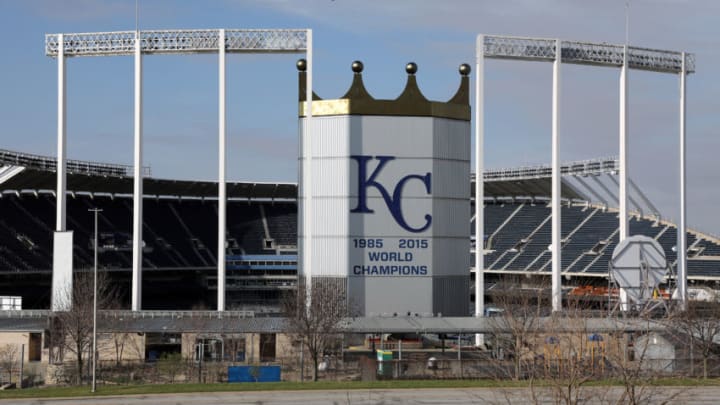
2015 vs. 1977
The 2015 World Series winners face the best team of the Royals’ 1970 era.
Game 1: The 1977 Royals had a .630 winning percentage based on a 102-60 record that is the best in franchise history. The 2015 team was 95-67 .586.
Game 2: The 2015 team’s World Series win came with a.687 post-season record. The 1977 team’s post-season percentage was .400.
Game 3: At 98, the 2015 team’s OPS+ is ordinary. The 1977 team’s 109 OPS+ is clearly a winner.
Game 4: The 1977 Royals produced a 115 staff ERA+, three points better than 2015’s 112.
Game 5: At 51, the 1977 team’s WAR was nearly 10 points better than the 2015 team’s 44.1.
Result: 1977 in five games
1985 vs. 1980
Two memorable World Series competitors square off in the second semi-final.
Game 1: The 1980 team had a 97-65 regular season record for a .599 percentage. In 1985, the Royals were 91-71, .562. That’s a win for 1980.
Game 2: The 1985 team won the World Series with a .571 post-season record. The 1980 team lost the World Series, and its .555 post-season percentage comes up just short.
Game 3: The 1980 team had a 108 OPS+. In 1985, the Royals produced nothing better than a 95 OPS+.
Game 4: This series evens at two games each as the 1985 team’s 118 staff ERA+ easily beats 1980’s 105.
Game 5: Behind Brett, the 1980 Royals had a 44.9 WAR. The 1985 world champs got their WAR to 39.6. Not good enough.
Game 6: The 1980 Royals’ .978 fielding average matched the league average. The 1985 Royals fielded .980, one point better than the league average.
Game 7: Each team produced just one Hall of Famer, Brett. That sends the series to a Game 7 tie-breaker, which is decided on the basis of All Star selections. The 1985 team produced just one selectee, Brett. The 1980 team fielded three: Brett, Gura, and catcher Darrell Porter.
Result: 1980 in seven games
